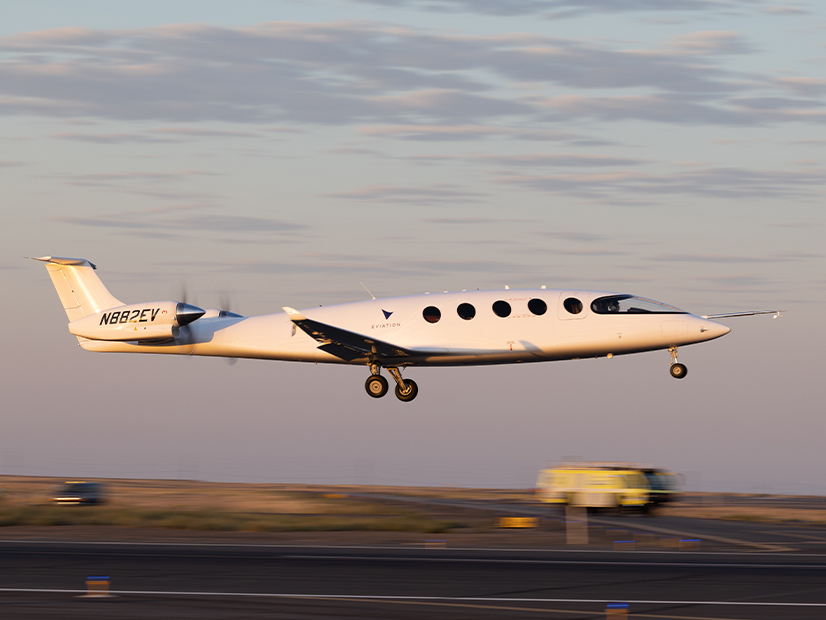A Washington aviation company’s all-electric prototype commuter plane flew for the first time Tuesday.
At 7:10 a.m. PST, the prototype “Alice” aircraft lifted off at an airfield at Moses Lake, Wash., on a “proof of concept” flight. It circled for eight minutes at 3,500 feet moving at 149 knots and landed according to plan.
“The mood at Eviation is electric,” said company CEO Gregory Davis at a virtual press conference.
Eviation plans to build three models of the two-pilot Alice — one for nine commuter passengers, one for six executive-level passengers, and one capable of carrying 2,600 pounds of cargo. The plane has a maximum speed of 250 knots and a range of 250 nautical miles. Davis declined to say what the sales price would be for an individual aircraft. Commercial use is projected for 2027.
Massachusetts-based Cape Air has signed a letter of intent to buy 75 commuter planes, and Miami-based Global Crossings Airline has signed a similar letter for 50 commuter planes. Germany-based DHL Express is interested in buying 12 cargo planes. Manufacturing will take place in Arlington, Washington, where Eviation is based. (See Electric Aircraft Company Lines Up Major Deal.)
In a press release, Cape Air founder and board Chairman Dan Wolf said: “We currently fly more than 400 regional flights per day, connecting more than 30 cities across the United States and Caribbean. Alice can easily cover 80% of our flight operations, bringing sustainable, emission-free travel to the communities we serve.”
In the same press release, Geoff Kehr, senior vice president for global air fleet management at DHL Express, said: “Alice is the true game-changer by enabling long distance air transport for the first time with zero emissions.”
At the press conference, Davis said deliveries to the airlines will likely occur in 2027.
Over the next few weeks, Eviation will analyze data collected in the first flight. A special focus will be on data from the batteries powering the flight and the propulsion system. The company plans to build three additional test planes to conduct more tests.
Davis expects the certification process by the Federal Aviation Administration to begin in 2025 and last two years. Using batteries to power a plane will likely be a major concern by the FAA, he said. “The biggest tech challenge is the development of the batteries … Developing an all-electric passenger plane is hard,” he said.
An unresolved question is setting up charging infrastructure at airports serving the Alices. A full charge would take 35 minutes. Davis said Eviation and the airlines cannot pay for all the infrastructure costs, saying the airports and federal government need to become involved.



